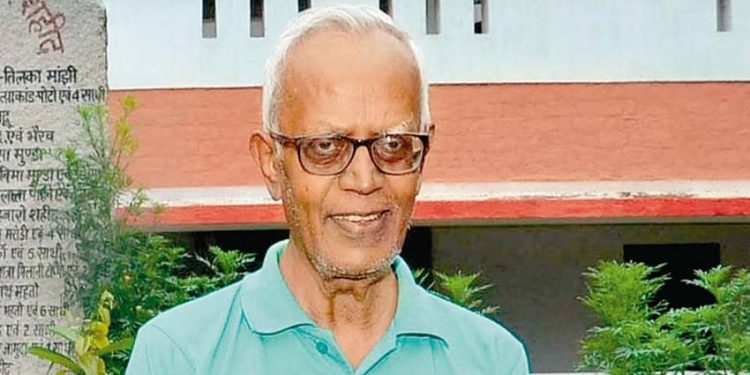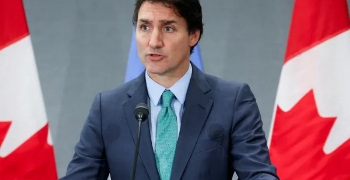It is a sad commentary on the country’s system of justice and investigation that Father Stan Swamy, a Jesuit priest and tribal rights activist, has died. He underwent inhuman treatment behind the bars after his arrest in the Bhima Koregaon case in October 2020. The treatment meted out to him was horrific, to say the least. Father Swamy was suffering from multiple physical ailments such as Parkinson’s. Yet he had to fight for even simple things like permission from Court to obtain a straw or sipper to drink water since his facial muscles were growing weak. The case of Swamy is illogically interesting to note. When the Bombay High Court said at 2.30 pm July 5 that it would hear his appeal for bail as the first item the next day, the Division Bench of Justices SS Shinde and NJ Jamadar were informed at that point that Father Stan Swamy had passed away an hour back.
Till he breathed his last, Fr. Swamy did not know what his crime was for which he had been arrested October 8, 2020 on charges under the dreaded Unlawful Activities (Prevention) Act (UAPA) of having links with Maoists in the Bhima Koregaon-Elgar Parishad case of 2018. It is interesting to note that Swamy was in no way involved with the events of January 1, 2018 at Bhima Koregaon. He had never been to Koregaon in his life, the scene of violence, he once pleaded. He had, for decades, fought for the rights of tribals and ‘moolavasis’ in Jharkhand. This was a fight against the rapacity of big business to plunder the natural resources with the help of friendly governments, while tribals lived in the mineral-rich land in abject poverty. Fr. Swamy had filed a PIL in Jharkhand High Court in 2017 against prolonged detention of 72 prisoners belonging to SC/ST and backward castes for alleged Left-wing extremist activities – and charged under UAPA provisions – in just one district, West Singhbhum. Invoking Article 21, he questioned the protracted pre-trial and asked for a court-monitored inquiry in all the 24 districts of Jharkhand. Ironically, three years later, even as his PIL was pending in the court, he was arrested under the same UAPA and denied bail sought on medical grounds.
Fr. Swamy’s repeated pleas that he might contract Covid-19 while in judicial custody did not get response from the judiciary. It was only June 28 that the Bombay High Court allowed him the facilities of a private hospital till his bail plea was taken up. The JJ Hospital in Mumbai, where the jail authorities had admitted him before, did not even care to conduct a Covid test. His death certificate revealed “there were post-Covid effects on his lungs.”
It won’t be an exaggeration to call the death of Swamy an act of murder by a ruthless, autocratic administration that won’t brook challenge to its anti-people decisions and measures, while the judiciary meekly watched the butchery of justice by the state machinery. The fact that the National Investigation Agency, probing the case, had never for once sought Fr. Swamy’s custody, but persistently opposed his bail pleas says it all about the government’s intent. It has been seen in several cases how the government has been using the draconian UAPA and the harsh provisions of the sedition law to silence its critics by forcing incarceration without trial.
Recent pronouncements by the Delhi High Court and the Supreme Court have laid bare the growing tendency of the government to use the harsh laws to deny bail since most of these cases have insufficient evidence to prove the charges. The Delhi High Court has even questioned how the term of terrorist acts can be used so indiscriminately as the investigating agencies seem to be applying. The apex court, however, could not see eye to eye with the Delhi High Court’s courageous interpretation of the UAPA.
Now comes more shocking news that the law enforcement agencies have been using the punitive Section 66A of the Information Technology Act even after the provision having been struck down by the court in 2015. This section empowered the police to make arrests over what was construed as ‘offensive’ or ‘menacing’ or for the purposes of causing annoyance and inconvenience by sending messages through computer, mobile phone or other devices. In 2015, the Supreme Court struck down the Section calling it “open-ended and unconstitutionally vague.”
When told how the defunct law is still being used to coerce people, Justice RF Nariman exclaimed July 5: “Amazing. What is going on is terrible.” Hearing a plea by the NGO People’s Union for Civil Liberties (PUCL), a Bench of Justices Nariman, KM Joseph and BR Gavai of the apex court issued notice and directed the Centre to make a written submission. The government argued the annulled Section is still being used because the ruling on the cancellation is put as a footnote only.
Such events demonstrate that the state, indeed, has become rotten.







































